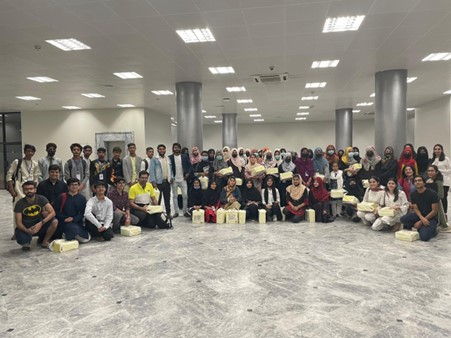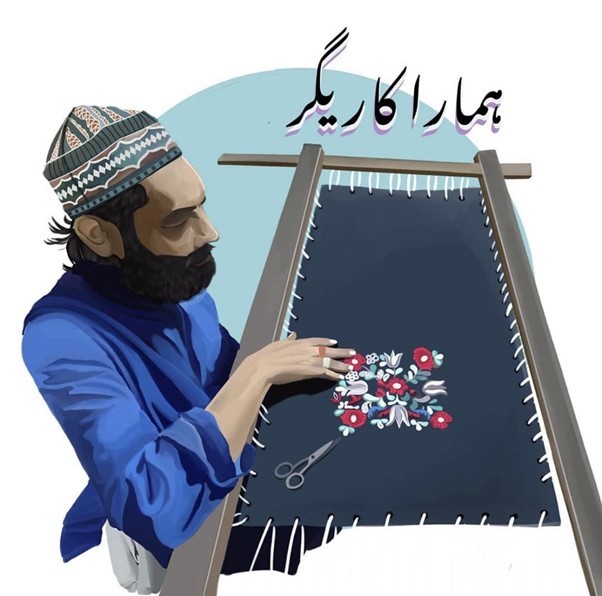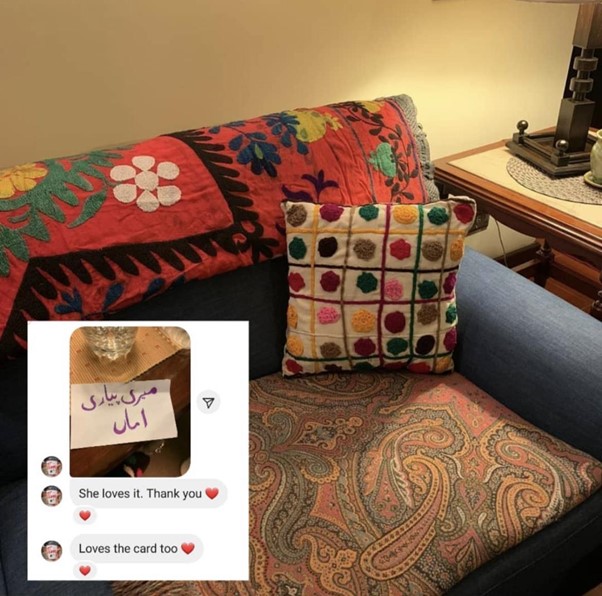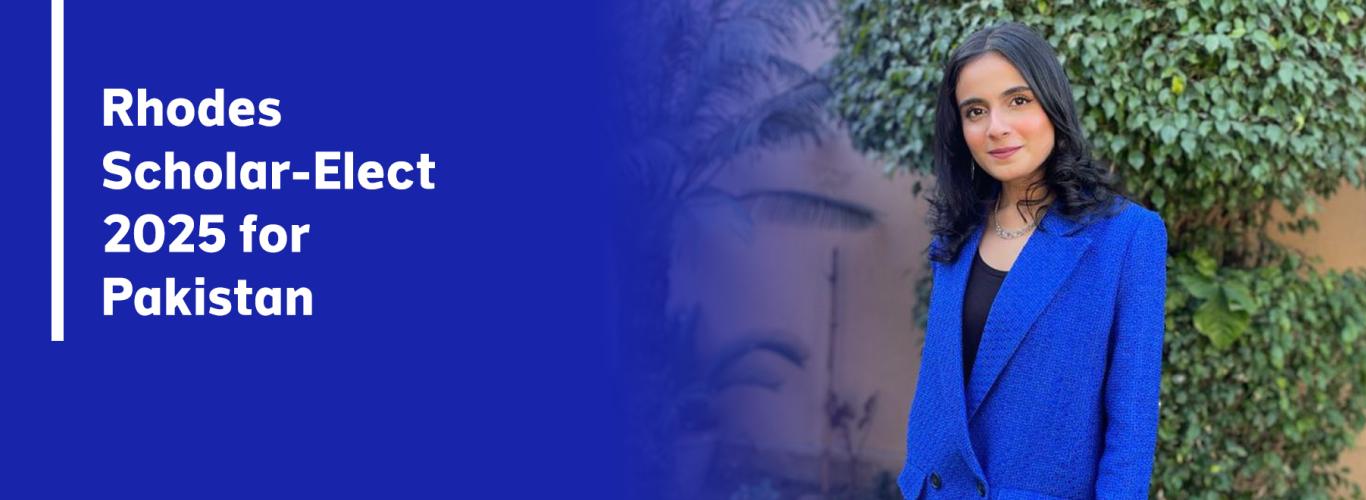LUMS Student Named Rhodes Scholar-Elect 2025 for Pakistan
Jovera Shakeel, a final-year undergraduate student, majoring in Economics and Mathematics at LUMS, has been named the Rhodes Scholar-Elect 2025 for Pakistan!
Jovera’s academic journey at LUMS reflects her deep commitment to addressing poverty traps and promoting the educational and economic inclusion of low-income communities, particularly at the intersection of gender, class, and disability. Her upcoming studies at Oxford will allow her to further explore her passion for development economics, building upon her experience as a teacher in a welfare school where she witnessed the transformative impact of education on underserved communities.
Beyond academics, Jovera has worked as a co-researcher on a LUMS-funded project examining the role of Pakistan's informal economy in agricultural indicators. She also leads as the President of the LUMS Consultancy Group, Pakistan’s largest student-run consulting club, and in 2020, she received a UNDP grant to establish Mukhtalif, a non-profit e-commerce platform that empowers marginalised artisans by sharing their stories and connecting them with new markets.
Jovera sat down for an interview to answer questions, share insights on her work, and offer a bit of advice for students aspiring to bring about change in their communities.
Congratulations on being named the Rhodes Scholar-Elect 2025 for Pakistan! How does it feel to receive this recognition and represent Pakistan?
I am filled with gratitude and extremely humbled at having been given this generous opportunity. I keep thinking of the phrase ‘it takes a village,’ and I am so grateful to have had mine who have been so kind and gracious to me. So much of this is because of mentors who have been transformative in my journey, including, but not limited to Dr. Ali Cheema, Dr. Mushtaq Ahmad Khan, Dr. Daniyal Khan, Professor Jasir Shahbaz, Dr. Soufia Anis Siddiqi, and Dr. Aisha Ahmad.
As I come to terms with receiving this big privilege, I am also constantly thinking about how to use it for better ends for everyone. There are so many who might not have access to this life-changing village. This should not mean that many of our most brilliant students are not dreaming big for themselves. These days, I think a lot about how I, or others like me, can create a structure to support such students. If we can do that, so many in Pakistan will be able to realise their true potential.
Could you share a bit about your journey at LUMS and what inspired you to pursue a joint major in Economics and Mathematics?
l actually came to LUMS as an Economics and Politics major. I enjoy being interdisciplinary and I wanted to choose a major that would allow me to gain training in economics while also being able to draw connections with other disciplines that fascinate me. At the start of my sophomore year, I mentioned to Dr. Mushtaq Ahmad Khan that I like Maths (is that even possible?) and was confused about my major. He advised me to take up Economics and Mathematics with extremely sound advice along the lines of ‘you cannot do economics without maths anyways, so it’s better to study it formally’. In hindsight, this was a great decision, and more so, because I’ve intentionally structured my degree to make it as interdisciplinary as possible. I’ve taken courses from each school at LUMS, been left with fulfilling questions for further exploration in each discipline, and been able to draw connections with economics. This semester, I am taking a course on Marxist Theories of Law and so many people have asked me what I’m doing in the course as a pure economics student. The response is “I’m having a great time, actually!” Courses like these and so many others, such as Economics of Education, and Public Policy Analysis, have filled me with intellectual curiosity about the alternate ways of viewing and engaging with economics, which I really enjoy.
Apart from the courses I’ve taken, LUMS has been extremely transformative for me. I have grown, and been stretched in more ways than I could have ever imagined, and each stage has made me so much more grateful for the immense privilege I have of learning something I enjoy. I have been able to channel my love for being on the other side of the classroom twice as a TA, been able to pursue meaningful research with my peers as part of a grant given by the university, as an RA for Dr. Daniyal Khan, as well as through my SPROJ, and been able to learn from some of the finest speakers through conferences, panel talks, and book launches held at the university.
Your work focuses on poverty traps and integrating low-income communities across gender, class, and disability. Could you elaborate on your research and its impact, and what motivated you to choose this field?
My research interest is a culmination of the years I spent as a teacher at a local community school and my non-profit, Mukhtalif. In the classroom, I would look at children from the most underprivileged backgrounds, whose parents would be imploring me to answer how education would create economic gains for their children. Very often, I had no answer. This got me thinking: how can education alone address the issue unless we address the other half of the issue i.e. economic exclusion? This is how Mukhtalif, was born, which was an opportunity to work with communities at the intersections of class, gender, and disability. Now, I think very much about the structural roots of poverty traps, and how we can design long-term trajectories of excluded individuals to be included in both education and the economy.
Teaching at a school for five years must have been eye-opening. What insights or experiences from that role shaped your vision for educational reform?
It has been extremely eye-opening, fulfilling, and heartbreaking. Fulfilling because I love being a teacher. One of life’s greatest joys is being able to create a difference in the classroom by showing students all that education can do. It has also been heartbreaking because while education has always been a crisis in Pakistan, I have witnessed it become the emergency of the form that it is today. So many children are either not attending school altogether or are passive recipients of the education system, as in, they are present in the classroom but not engaged with it in the same way as their peers. I find this to be a societal failure to not realise how transformative insights from these students can be, and I have been thinking a lot about how, we as a society, can innovate in creating space and opportunity for such students.
As President of the LUMS Consultancy Group, what are some impactful projects you've led? How do you see student-run consulting contributing to social and economic change in Pakistan?
I started working with the LUMS Consultancy Group in 2021 as a team member, and have served in three departments: Client Management, Social Impact Project, and Research and Insights. My favourite year was 2022-23 when I was Assistant Director of the Social Impact Project, along with an exceptional team, in its flagship year. The department had a really interesting vision, that I enjoyed contributing to.
We noticed two things. Firstly, consulting has largely been an exclusionary occupation. Therefore, we partnered with the Centre for Business and Society (CBS) at LUMS, and charity colleges such as Akhuwat College Kasur to impart consulting knowledge to high-school students from underprivileged backgrounds. The idea was to make a sustained effort towards providing workshops on soft and hard skills, which could have an impact in terms of job-seeking.

Secondly, high-school students are unaware of what consulting is. Most of us are introduced to the field in university. Developing consulting acumen at the high-school level was a huge gap, that was yet to be explored. So we partnered with many high schools across Karachi, Lahore, and Islamabad to conduct consulting competitions and workshops for high school students, where our members would go in as judges.
At Oxford, you’re excited to explore development economics. Are there specific areas or questions you’re most looking forward to studying?
There are so many questions that fascinate me, and the prospect of learning so much is so exciting. Primarily, I am interested in gaining economic apparatus that can help me design social programmes for the economic and educational inclusion of Pakistan’s underserved communities. I am particularly interested in the framework of poverty traps to understand the structural factors that inhibit social mobility for some individuals. However, many other frameworks could achieve the same purpose which I want to learn. By designing such systems, I hope that we will be able to address the critical need to create space in our public delivery systems.
Could you tell us about Mukhtalif, your non-profit e-commerce platform? How did it start, and what impact has it had on artisans from marginalised communities?
In 2020, I created an online e-commerce platform called Mukhtalif using a UNDP seed grant of $700 through which I took charge of the marketing, distribution, and banking of handmade crafts and clothing made by members from underserved communities in Pakistan. Our economy tells transsexuals that they are not worth accommodating because they do not want to work in ‘dignified’ professions. My first artist, Sapna, a transsexual person I met through Instagram, sold embroidered clothing that she designed and stitched herself.

Mukhtalif went on to support the businesses of other such rejected communities by engaging individuals like a paralyzed embroiderer, among others. Under this model, the artists got to keep the entire share of the profits from the proceeds of sales of their products. Mukhtalif gave me a purpose: I poured my heart into creating awareness about the artists' stories (shoutout to my elder sister who designed personalised stickers for each artist to accompany their work!). It also allowed me to envision what programmes to increase economic inclusion could look like. This experience strengthened my conviction that there is an urgent need to make Pakistan’s future economy more adaptable while it is still emerging and flexible.

What advice would you give to other students who aspire to make a difference in their communities?
We can all see the many inequities around us and most of us do not intervene, thinking there is no point in our small, individual efforts. I am learning a lot of things, but if there is one thing I know for sure it’s that no effort towards your passion is too small. A skill, or effort, you think is insignificant might be someone’s life-long dream to achieve.
However, it is also very important to be aware of the contributions people have made to our journey. Most of us had people in our lives that made us realise our calling, or provided us with opportunities to explore it. So much of what you have been able to do is because of the contribution and wisdom of others. There is so much power in staying genuine to this realisation and paying it forward.
Pakistan has a lot of possibilities. If what we are doing seems to be failing repeatedly, then that should motivate us to try harder to approach our problems in different ways or engage repeatedly with those most affected to make them part of the process of change, instead of giving up on them altogether.
With your diverse roles and responsibilities, how do you balance academic, professional, and social commitments?
I have to be honest, I’m not the best person to ask about this, because I am not the best at maintaining a balance in all of these. Very often, the balance is skewed in favour of academic and professional commitments, instead of social. This is very much a work in progress for me, and I succeed in some weeks, while I fail in others. However, I do have a couple of things that help. Making a daily task list, and crossing off tasks as you do them, is both satisfying and helpful. Being able to prioritise work into what needs your immediate attention and what can be delayed also helps. There are some days when I am in a slump and neither strategy works. For those days, I advocate having discipline, which will get you through days even when passion is not working.
Looking ahead, what are your long-term goals for social impact and economic reform? How do you envision your career contributing to these areas?
There are so many ways in which one’s career can unfold once you start learning more about your area of interest, but what I’m sure about is that I want to continue working on addressing the structural roots of educational and economic exclusion. These are very real issues, and extremely close to my heart. While there can be so many ways of addressing them, I hope that through consistent and persistent effort, we can design systems to create tailored educational and economic inclusion programmes. We owe real change to the children at the peripheries of our education system, and those our economic system continues to sideline. I want to continue using my academic efforts to insert myself into this discourse and make active efforts to uncover the experiences of such individuals in our society.























